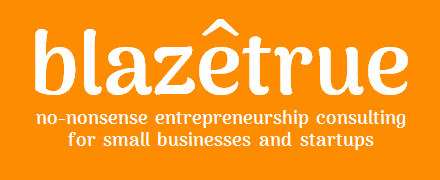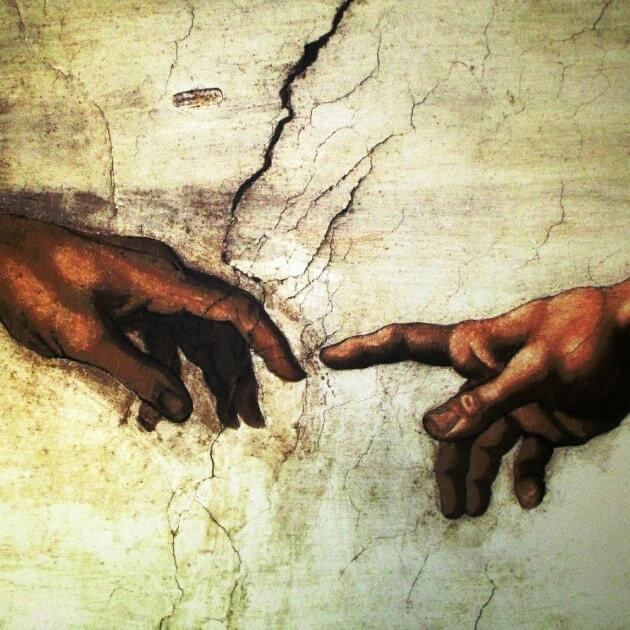



Prince Peter 25th May 2025 updated.
Business terms are not created for entrepreneurs.
As unreasonable as it may seem, business concepts and terms, and their definitions and meanings, are usually created for - and by - accountants, journalists, academics, and lawyers. Entrepreneurs who actually conceptualize, create, build, and run businesses - and give real meaning to all business terms in real life - are seldom involved in creating or defining these terms.
If you are an entrepreneur, almost every business term you know has been wrongly defined for you, since their definitions and meanings have been assigned for accounting, legal or journalistic purposes. Since these terms are being used so far from their actual entrepreneurial source, most business terms have completely lost their underlying, fundamental value; none of these terms will serve an entrepreneur well.
It is time to rescue those business terms and bring them back home to their actual owners - entrepreneurs. Let's begin this rescue mission with four business terms: Assets, Customer, Competition and Brand.
This Blazetrue article too is aimed at my core audience of independent startup and small business entrepreneurs.

related term: capital
The meaning of ASSETS has been wrongly limited to only financial resources (or those that can be readily converted to cash) because accountants have hijacked the term for their exclusive use. Historically, accountants have taken inventory of all equipment, machinery, supplies, furniture, trademarks, copyright, cash, real estate etc., called them your ASSETS, and added up their cumulative value in cash to assign the worth of your assets
.
The fundamental mistake in this approach is that it calculates the financial value of your business - were it to be sold today. However, the most common reason an entrepreneur is looking at her assets is to evaluate how to launch, run, or grow her business - not to sell it.
When we consider ASSETS from an entrepreneur's perspective and look at what it actually means for your business, it is clear that the real definition of ASSETS is: All your resources that can be used to sustain or grow your business.
How this true definition fundamentally differs from the currently accepted accountant's version is that quite often the most valuable assets of a business - such as passion, relationships, vision, reputation - cannot be fairly exchanged for money or even transferred to another context.
And the best judge of what those assets are - and what their value is - is you, the entrepreneur (Who is an entrepreneur?). Bill Bowerman was one such entrepreneur.
1962. On a trip to New Zealand, Bill Bowerman, an American sports coach, saw something that amazed him.
Groups of people, running on the streets - for no reason whatsoever! He asked around and discovered that this crazy concept was called jogging.
Bowled over by its great potential in fitness and health, Bowerman wanted to popularize jogging in his home country and create shoes suited for jogging.
But no bank or financier in USA was willing to support his venture because Bowerman had no money, no property and no backing from existing industry majors - in effect no assets
.
Bowerman decided to go ahead anyway.
Zoom forward. Present.
: Jogging, and associated activities, in part because of Bowerman's efforts, have more than 100 million enthusiasts worldwide.
: Nike, co-founded by Bowerman, is the world leader in athletic footwear, and has helped create an industry valued at over $100 billion.
So, what ASSETS did Bowerman have in 1962 to make this possible?
Passion: Bowerman was already a shoe fanatic trying to make the perfect shoes for athletes. Now he also became a passionate advocate of jogging's health benefits, and co-authored a bestselling book called Jogging that helped start the jogging revolution in USA.
Innovation: Bowerman was an innovator who created revolutionary new rubber soles for athletic shoes - using the waffle iron in his kitchen! These shoes were lighter, faster, and gripped the ground better - and were distinctly superior to the competition.
Relationship: Bowerman developed a trusting relationship with Phil Knight, a student athlete he had coached; Knight would eventually co-found Nike with Bowerman and become the marketing and business brains behind Nike's gargantuan success.
Vision: Bowerman and Knight had a shared vision of developing the best footwear for athletes - which could also be worn by ordinary people, the mass market.
All these assets that Bowerman possessed while building Nike, would have had little value on the typical balance sheet. In fact, each of these assets was evaluated and rejected as without value by the market experts
.
: Passion was discounted and jogging itself was written off as a silly fad: until Bowerman, and other fanatical jogging fans like him, changed the perception of slow running with their passion.
: Bowerman's innovation in fact worked against him! Leading shoe companies repeatedly rejected Bowerman's revolutionary designs - forcing him to actualize it himself.
: The incredible value of the relationship between Knight and Bowerman, and also the strong relationships that the two had within the athletic community was of course considered worthless as an asset.
: The vision of mass marketing athletic shoes was considered ridiculous, mainly because it had not been done before.
The real value of Bowerman's assets - ideas, passion, relationship, and innovation - was in fact visible only to him, and perhaps to his entrepreneur-partner Knight. Those assets had no sale value..
..till the entrepreneur created value with - and for - it.
Message for entrepreneurs: Your truly valuable assets, such as an entrepreneur's belief, dreams, ambitions, passion, relations, vision etc., can be difficult to value appropriately - especially during the early stages of a startup.
Nevertheless, it is your right and your duty, to enumerate and evaluate the assets of your venture yourself before you let others do it for you. Otherwise there is every chance that by wrongly defining them you will lose your most valuable entrepreneurial assets.
The business is your dream, not their asset
.

related terms: consumer, market, partner
As an entrepreneur your true and essential partner is the customer who makes your business a reality, because your business becomes real only when a customer pays you; until that point you have a hope, a concept, a possibility - not a business.
Awesome people have already defined the word in awesome ways, showing us all what a customer truly means to a business. So, lemme take a backseat and let them tell it like it is.
Mohandas Gandhi probably said it best: A customer is the most important visitor on our premises. He is not dependent on us; we are dependent on him. He is not an interruption in our work; he is the purpose of it. He is not an outsider in our business; he is part of it. We are not doing him a favor by serving him; he is doing us a favor by giving us an opportunity to do so.
(attributed)
Peter Drucker, arguably our foremost thinker on business and business management, is also clear about the primary role of customers in business: There is only one valid definition of business purpose: to create a customer.. It is the customer who determines what a business is.. The customer is the foundation of a business and keeps it in existence. The customer alone gives employment.
Jeff Bezos when faced with opposition to negative product reviews by Amazon customers because it could reduce the company's sales, famously said, We don't make money when we sell things. We make money when we help customers make purchase decisions.
(You gotta love an entrepreneur who dares to found a business whose mission is to be the Earth's Most Customer-Centric Company - even when real world practices don't always match up to that claim!)
Like any concept, here too it is not the theoretical understanding, but the attitude that ultimately matters. If you really truly understand that without customers you won't have a business, you don't need to read the rest of this section.
Though, this true definition of Customer is barely hidden, it has increasingly become more a savvy marketing tool used to achieve quick sales, rather than morph into a true understanding that shapes the basic philosophy of all entrepreneurs.
Which is why we have comical practices like Customer Week
which are annually celebrated by many companies, obviously with the lofty intent of keeping their customers in mind - for a full week, no less! None of those businesses have a Profit Week
or Salary Month
because of course that would be silly!
There are far too many horror stories in the business world of large companies that treat customers atrociously; so let's examine a borderline case which is still not a totally lost cause - in an industry that's driven by millions of individual entrepreneurs.
Transportation probably has the highest number of entrepreneurs of any industry in the world, with the possible exception of Retail; and for that, among other reasons, it is close to my heart.
Exact figures for the total number of taxis and autorickshaws, as well the number of entrepreneurs among them, are difficult to ascertain; but Chinese cities have over 1.4 million taxis and India alone has an estimated 5 million autorickshaws! The vast majority of these taxis and autorickshaws are driven by entrepreneurs who either buy or rent/lease the vehicle.
Even in an industry with so many entrepreneurs, where the entrepreneur himself directly sees daily that the customer is essential for his business, the customer has often become an afterthought.
The difficulty of hailing a Yellow taxicab in New York City is so fabled that scores of movies portray it and dozens of articles offer guides to achieve that feat! Even then, the guides have difficulty explaining why so many taxis drive past you without stopping. (In)Famous too are the autorickshaw stands of Chennai and Mumbai where dozens of drivers sit in their vehicles all day long, negligently refusing most of the customers.
If your neighborhood grocer sat in his shop all day long and refused to sell goods to customers most times of the day, you would seriously worry for his mental health; but in the world of taxi and autorickshaw entrepreneurs, it seems to be perfectly rational business behavior!
What is surprising is that this happens in a crowded market where the entrepreneurs are facing intense competition not just from other driver entrepreneurs but also from dozens of other competing transportation systems including trains, buses, and legs; and that, in a market where differentiation seems extremely difficult.
So, what do these entrepreneurs do to reverse this bad situation? They add the well known customer-centric habits of extortionate pricing, rudeness, meter tampering, and denial of service to their business mix!
It was in this scenario that ride-hailing startups like Uber, Grab, Didi Chuxing, Lyft and Ola entered the industry, competing in the traditional turf of taxi (and autorickshaw) entrepreneurs, and easily grabbed customers away from the taxi drivers.
Of course, the enormous war chests of the ride-hailing startups and their lower pricing helped too; but the real reason the customers drove away in droves is that because of the independent taxi industry's lack of customer-centricity the customers for decades been desperately seeking an exit route anyway, and escaped at the first real option that they were given.
So, is the future dark for all independent taxi and autorickshaw entrepreneurs? Well, not if you are a customer-centric autorickshaw entrepreneur driver, who offers a differentiated service and earns far more than his competition!
Let's hope more independent entrepreneurs in the industry see the light before its too late. Ride safe!

related terms: competitor, partner
The origin of the word competition underlines its true meaning and definition; competere, from Latin, means to strive in common or to strive together. The purpose of business competition is to improve a common ecosystem and to create better possibilities for each other, and for the world at large.
As an entrepreneur, your competition would be the businesses and entrepreneurs who offer similar services or products in a similar market. They are also your partners who expand your market, improve your industry's visibility and enhance your business scope.
Competition improves your startup or small business by forcing you to perform at your best. Competition sharpens your skills and drives your improvement. Competitors spare you great expense by allowing you to learn from their costly mistakes. Competition helps develop a better ecosystem and thus creates a larger market for all players in the industry. Competitors publicize your product/service categories thereby increasing the visibility and acceptability of your own business.
Competition therefore is fundamental to the existence of any healthy business ecosystem. Competition is what makes most business ventures possible.
Let us explore that latter idea with a small example. Take Blazetrue - which is real small! - and understand how competition has made its existence possible.
First: the consulting industry itself, of which Blazetrue is a tiny participant, was built by competition - consulting companies who built the industry over scores of years at great risk, effort, and expense.
Second: the market within which Blazetrue operates was nurtured by competition - through publicizing the concepts associated with my business and making similar offerings marketable and palatable to millions of buyers.
Third: client acquisition was made infinitely easier for me by my competition - by winning the trust of people in a hundred countries through millions of successful service deliveries.
Fourth: my cost of doing business has been radically reduced by my competition - through the thousands of mistakes made by my competition at great personal and business cost, so that I could learn from them for free.
So, I consider past and present competition as my partners. As a boon, not a bane. If anything, I would have liked a little more competition, especially in my own arena of entrepreneurship consulting, which would have helped mature the still nascent industry and made my job so much easier!
However, I do realize that businesses and entrepreneurs mostly view competition as villains and behave as such themselves - creating a self fulfilling prophecy that ultimately harms everyone - and snatches away great opportunities for mutually beneficial partnerships. The global film industry showcases all that can go wrong with that mindset.
: Hollywood - film industry's first villainous competition!
At the beginning of the 20th century, the commercial film industry was not Hollywood. The film industry was then the virtual fiefdom of Thomas Edison, the prodigious inventor and entrepreneur. Through his several inventions and patents, and through the partnerships he had forged with other patent holders in movie making technology through the Motion Picture Patent Company formed in 1908, Edison had achieved a near monopoly in filmmaking.
The independent filmmakers - and possible patent infringers - who were being pursued by Edison's lawyers were designated as the film industry's first villains. So, the independent film entrepreneurs chose to literally move as far away from Edison, who stayed at New Jersey, as possible - and shifted their base to Los Angeles and the sleepy municipality of Hollywood in California. The distance and the differing interpretations of law made it difficult for Edison to enforce his film technology motion picture patents in California state. Thus was born Hollywood!
In time, Hollywood became the centre of the commercial film industry and Edison had missed a great opportunity to be at the forefront of an emerging industry and lost the chance to forge a hugely profitable partnership.
As you will see, this harmful cycle of suspicion of competition and incredible missed opportunities will recur again and again and again.
: Television - film industry's next villainous competition!
Even from the very early days of television broadcasting in the 1940s, the film industry across the world had often viewed television as an upstart that needed to be thwarted at every stage.
Television was viewed as the evil competitor who would reduce ticket sales and destroy box office earnings, if not dealt with severely. In several countries film actors and technicians were effectively banned from working for television. In others, the film industry either refused to broadcast movies on television or stipulated harsh timelines for their television premiers. This continued in different forms for the next 8 decades: in India, for example, several film making bodies still routinely prevent the natural, legal flow of artists from film to television.
This behavior is nothing short of amazing, considering that television has now become an important partner of the film industry. In fact, the broadcast rights of movies is critical to the survival of the film industry in many markets. Again, take the case of India, where many movies would find it difficult to be profitable, and would in fact never have been produced, without the guarantee of television broadcast fees.
In time, television became the centre of the audio-visual entertainment sector, growing into a $250 billion behemoth, while the film industry today barely tops $40 billion. It would seem that an earlier and stronger partnership would have helped form a much bigger and much more profitable partnership for the entire audio-visual industry.
: Internet - film industry's latest villainous competition!
The Internet, beginning with its public commercial use in 1989, has become one of the greatest milestones in the history of human commerce and human communication.
The film industry however had a different view and saw online delivery as an existential threat. Since the beginning of the new millennium, the internet was designated as their greatest enemy and the film industry began painting file sharing websites and software as online demons who were out to destroy the film industry. The internet was not just bad competition - it was evil.
In reality the film industry had been offered an amazing new delivery medium that was cheaper, faster, and infinitely customizable. The internet could enable monetization of the film industry's massive library of old movies, and could give also give them direct access to, and invaluable insights into, individualized customer behavior patterns. But, all the film industry managed to see was an enemy and refused to understand that the reasons behind business failure seldom have anything to do with outside competition.
The film industry filed hundreds of lawsuits in dozens of countries against internet companies and against internet users. They obviously thought that the best way to capture this fantastic new market opportunity was to send their potential partners and consumers to jail!
The film industry stayed stuck in their enemy-competition mentality - even after Netflix, an internet delivery startup, started single-handedly earning over 25% of the entire global film industry's revenues.
They stayed stuck even when Amazon Video, an internet delivery company, looked ready to repeat Netflix's success - perhaps an even bigger one, given their gigantic trove of pre-existing online customers.
And they stayed stuck even after online delivery directly to television, computers, and mobile devices, made the Internet the primary method of audio-visual content delivery to consumers.
It seems that yet again, the film industry viewed its greatest opportunity as its greatest enemy - until it was too late.
: In 2040 - the film industry will have no villainous competition!
The good news for the film industry is that soon there will no more evil competition for them.
Mobile broadcasting, Youtube, independent short film making, and smart televisions, have made online delivery the leader in audio-visual content delivery to consumers, and established short format content as the consumer's choice. Consequently, the film industry, as it exists now, will not survive beyond the next 15-20 years. Then they won't have any competition.
Currently, our general definition of the term, increasingly tends to mean enemy.
Unfortunately the unthinking (and sometimes unethical) behavior of entrepreneurs and businesses, have confirmed that viewpoint. But it is the people who are at fault, not the concept. You cannot drive drunk, knock someone down, and pretend that the fault lies with the invention of the internal combustion engine!
Bad behavior by people under the guise of competition makes for bad business and bad life: and with this extremely foolish attitude ultimately everyone loses.
A better, more intelligent approach to competition will enable us to work with other entrepreneurs and develop industries that serve all of us better. And truly make our world a better place for us all.

related terms: branding, brand identity
Before we look into the true meaning of Brand, let us understand that brand and branding are different animals.
Branding can be defined as the act of trying to associate some values (such as words, color, visual image) with a brand. Branding is usually orchestrated by the brand owner in the form of advertisements and publicity, using branding vehicles such as logos, taglines, brand colors, billboards, television spots, and advertisements across various media.
Brand is the perception that people build in their minds about an entity, product or service - either influenced by the branding or even independent of the branding efforts. The brand exists in the minds of the people.
Brand is perception - but its reality; branding is real work - but its mostly hope!
How your business or any part of it - such as an individual product or a set of services - is identified and perceived by people is what your brand is. Brand is what people think about you.
Brand is typically thought to be conveyed through your business name, logo, slogans, colors (think Virgin red, or Orange orange), font, design (think Coke bottle, think iPad), and even smells (think Old Spice), tastes or sounds (think Harley Davidson). The brand of a business is therefore assumed to primarily comprise of all the branding efforts of a business - such as its logo, tagline, marketing message, advertisement, packaging etc.
Well.. to put it mildly, that definition is wishful thinking. While branding efforts can be part of your brand, the physical aspects of your branding are all just pegs to hang your brand on.
What actually defines your brand are the mostly unspoken emotions that your business, product or service evokes: the values and identity that ultimately becomes your brand depends on what and how you actually deliver to your clients. Therefore, the most integral part of your branding is not your logo or your advertisements but your customer fulfillment.
Think of your favorite brands. Think why are they your favorites. Because of their great logos and ads? Or because you trust or like what the brand offers you and how it makes you feel?
Lets us consider two examples of excellent visual branding: Nike and Virgin. Both have very simple, yet very distinctive logos, and often have advertisements that stand out.
But the real reason we are talking about Virgin and Nike, and the quality of their branding is not because they have great visual branding or entertaining ads, but because their entrepreneur founders Richard Branson, and Phil Knight and Bill Bowerman, created excellent brands by delivering services and products that have given happiness and satisfaction to millions of customers. It is when those millions of people allied their powerful and memorable emotions about the Nike and Virgin brands with the branding - the logos, the taglines, the TV spots, the brand colors etc. - that the branding had value. Not the other way around.
But, even when your branding is universally praised and even when the brand itself is extremely valuable and positive, the company cannot fully control the brand. The emotional connections made by the customers with your brand are often beyond your control - for better or for worse. The branding may be legally owned by the company - but the brand is owned by the consumers, the market, the people.
In April of 1985, the Coca-Cola Company took the biggest branding risk since its founding.
Coke's market in its flagship USA market had been steadily declining for a few decades, and had fallen from over 60% to under 24%. Their arch-rival Pepsi-Cola had gained leadership in certain market segments. Worse, in a brilliant marketing campaign by Pepsi, ordinary people were shown to overwhelmingly choose Pepsi over Coca-Cola in blind taste tests.
Coca-Cola CEO Roberto Goizueta had had enough and he initiated a change that had never been attempted since Coca-Cola was founded in 1886: modifying the original Coca-Cola formula.
The reformulated, sweeter new cola was a winner in taste tests and surveys involving over 200,000 people - easily beating both Pepsi and the original Coke. And, when production of the original formulation was stopped and New Coke was launched on 23 April 1985, Coca-Cola executives had every reason to believe that it would be a market champion.
What transpired, in fact, was an angry backlash that has few parallels in the history of product branding.
More than 40,000 calls and letters of protest flooded the Coca-Cola office and protest groups sprung up all over the country. The company was sued, Congress was petitioned, and songs were written to recall old Coke. In protest many consumers stopped drinking Cola-Cola products altogether and there was a threat that even some bottlers may boycott New Coke. It was pandemonium.
Taken aback by this massive backlash, Coca-Cola reversed its decision after just 77 days and the original Coke taste was brought back. It was welcomed back like an old friend and within a year, Coca-Cola Classic was significantly outselling both New Coke and Pepsi!
So, what had happened? Why did a formula change to a sugared drink - with a taste which was statistically far better than the old one - evoke such strong reactions?
The answer is that through a hundred years, the Coca-Cola brand had developed into something which the company - and even the consumers - could not fully and logically encapsulate.
The consumers had shaped Coca-Cola into a brand that to them probably represented tradition, community, memories, history, patriotism, stability.. and probably much more - I don't know for sure either.
But the one thing that became clear was that the product is not the brand and a brand's complexity and depth cannot be limited to branding. What so many people had found worth fighting for, was not a sugared water formula owned by a multinational beverage corporation, but a brand with which so many human beings had formed strong, enduring emotional bonds.
The best, the most real answers to all important questions will always be the ones you find for yourself in your journey as an entrepreneur; but I do hope that my writing serves as additional signposts in your search for those answers.
Thanks again for your time and attention.
Signing off with my best wishes for your business venture,

P.S. each word you have read above is written by me, Prince Peter, and I take personal responsibility for all I have said.
